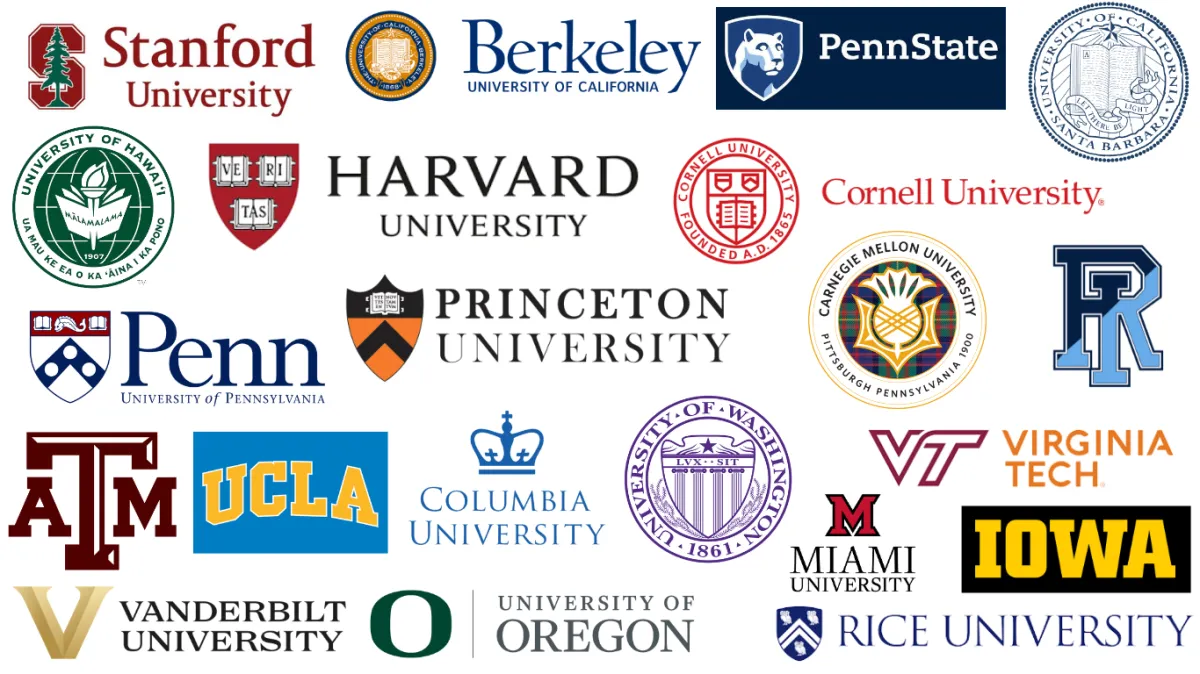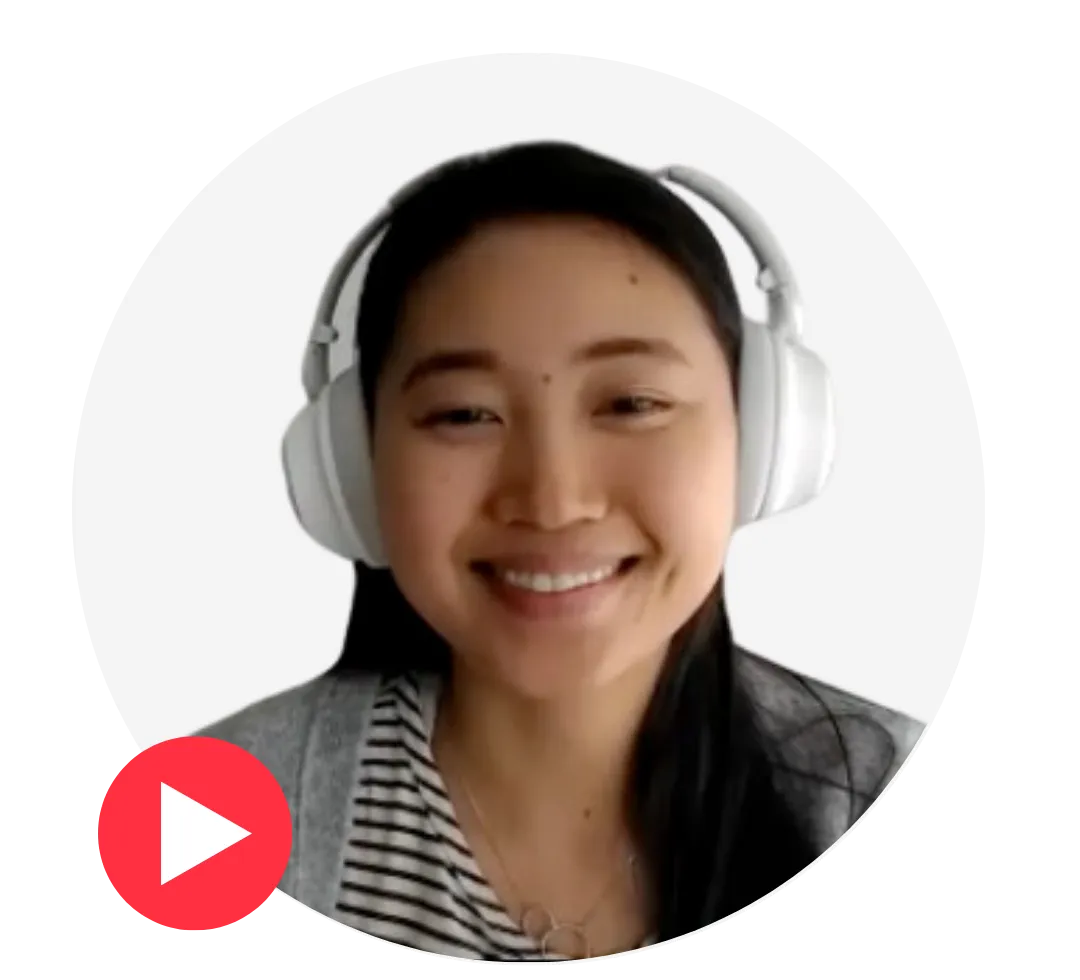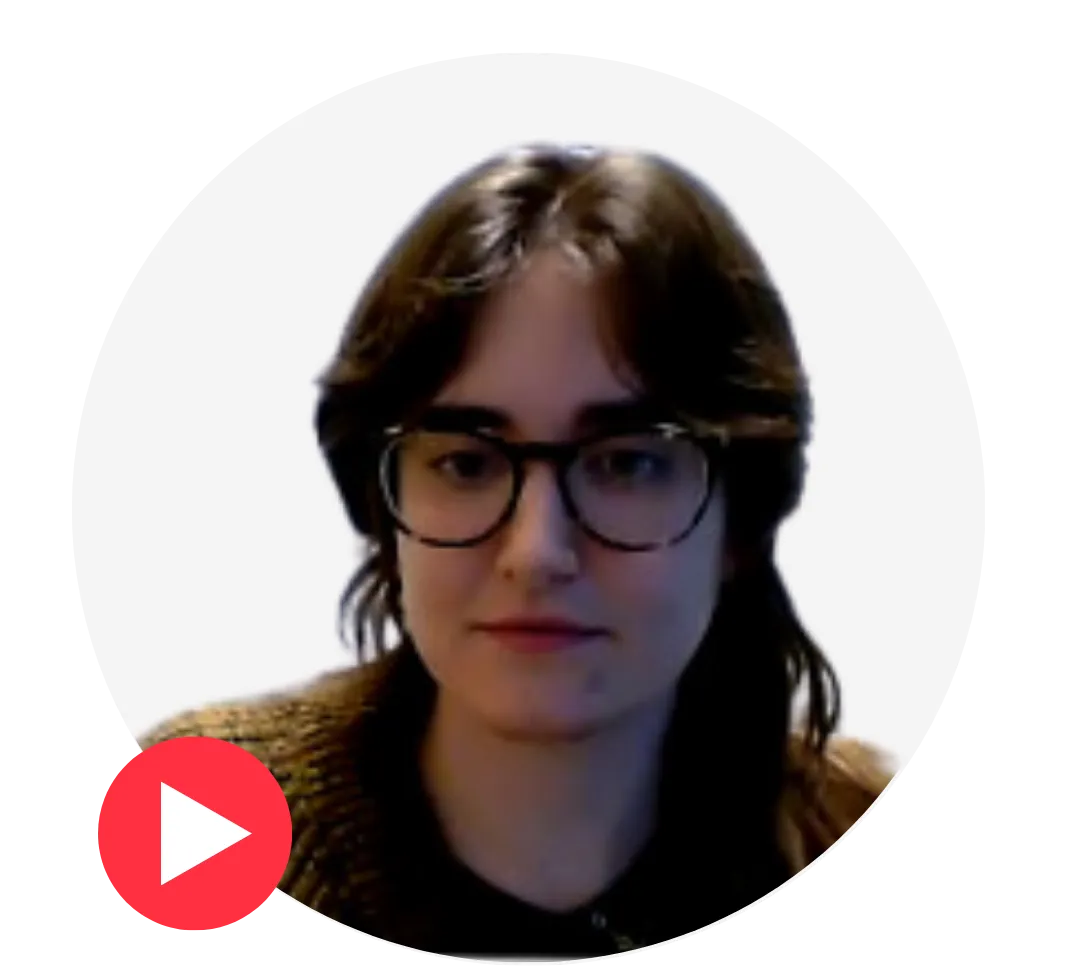Getting your PhD will change your life. We know it changed ours.
We know that monumental shift from “Is it possible?” to “I can’t believe I’m starting at my dream program and they’ll be calling me Dr.”.
We also know how frustrating it is when you’re spinning your wheels trying to get accepted.
That’s where we come in.

PhD offers are given to confident people, not necessarily the 4.0 student
Our training and advising programs work together to help you build the skills you need to get accepted with full funding at top PhD programs.
You become the most confident PhD in the room that makes you the natural choice to admit with full funding.
Confidence comes with a price.
The price is work.
By building skills through practice (i.e, not mindlessly consuming content) you will become confident because you’ll know you earned it.
Our process is proven, we’ve helped our clients get in at 350% higher rates than others, and secure over $19M in funding.
We've Helped Our Clients Secure PhD Offers From Top Schools With Full Funding

Sarah used our networking frameworks to get multiple offers and selected her dream fully funded PhD at Carnegie Mellon in computer science
I am so thankful for the push that you gave us to really reach out and the templates of how to have a conversation with them because those conversations directly informed my research proposals and statement of purpose and those pieces were so much stronger because of these discussions I had.
Taylor tapped into the community and went from rejected to their dream fully funded PhD at Columbia Teachers College in psychology
I decided to pursue a PhD again after not getting in the first round. It was really scary and looking back there were lots of things I would have done differently, so I really wanted to set myself up and have as much support as possible in the process for round two. Now, after the program, I mean it's very different in that I have achieved a lifelong goal getting into my PhD, and before the program I was in a state of just feeling really scared about the whole thing. I realized how much I needed a community and people who really knew what they were doing to help me.
Instead of fearing rejection, you will feel excited to build real relationships and create opportunities for yourself.
As a Cornell PhD alumni, I’ve seen first-hand behind the curtain and helped hundreds land their dream PhD. Since less than 3% of the population has a PhD there’s a lot of confusion out there. Let me make it plain as day what it takes to succeed.
The FearlessGrad programs are where you gain skills to market yourself effectively, and show up authentically and confidently so they choose you as the natural PhD candidate.

Biak battled overwhelm and how to narrow her interests so she could get into her ideal fully funded PhD at Johns Hopkins in Public Health
I had a sense I always wanted to have my PHD, but I didn't really know how. The program really systematized the process for me. I wanted a mentor that had time and resources to answer my questions along the way, I think a lot of times mentorship is a one off call and then you can't ask all of your questions, and so I wanted that and also the community. Having a starting point for a lot of the action items so that I could just expedite that process and get over the anxiety really helped me.
Archit increased his email response rate by 800% and built relationships that helped him get into his fully-funded PhD at Purdue in Life Sciences
During my previous experience applying, I sent out 50 or 60 emails and maybe got 3 responses. After this program I maybe sent out 20 emails and received 8 or 9 responses. I spoke with people and decided which program would I would be a fit at.
We're a good fit to work together if...
You are committed to applying and getting into a PhD program
You have an academic background in your field
You’re willing to learn skills and ask for help when needed
We're not the people for you if...
You want to do your MBA, MD, JD or an online/part-time PhD
Your background is wildly different than your PhD area of interest
You are looking for someone to do the work for you, or you prefer to do what you’ve always done and not accept feedback
Cool, cool, cool. I read all that and I'm so ready to 3X my success rate so I can finally start my PhD next year. How can we make this happen?
Choose your path:
Self-paced digital course ($)
Learn to master PhD admissions strategy, so you market yourself so effectively they can't help but give you an offer.
Work with Dr. Natalie and PhD experts to become the most confident PhD in the room, through action, 1:1 advising, and community you're going to create multiple offers.
Matthias turned his “no way I can get in there” thinking into understanding strategic program fit and got multiple offers and selected his dream fully funded PhD at the University of Wisconsin in political science
Natalie focuses largely on fit, and goes to the point to make us do research on making sure we're not overlooking things. That was very helpful because I added schools and dropped programs because of it. And I was confident in those choices because I was putting in the legwork. What I used the most was the slack group. Because you see other people, other real people that are in this program that have similar fears and anxieties, some of them asking questions that you would want to ask.
Catherine juggled her final year of undergrad and full schedule to get into her ideal PhD program with full funding at Princeton in microbiology
I didn't want to apply twice because it's a laborious and stressful and expensive process so I kind of felt like it would be saving some of those expenses in the long run. If I know what I want, I want to do it once. And I wanted to know that I did everything I could to get myself where I wanted to be the first time.
Get In Touch
FAQS
What do financial consultants do?
Financial consultants provide financial advice and guidance to individuals and families. They can help you develop a financial plan, choose investments, save for retirement, and protect your assets.
How do I choose a financial consultant?
When choosing a financial consultant, it is important to consider their experience, qualifications, and fees. You should also make sure that you feel comfortable working with them and that they understand your financial needs and goals.
What is the difference between a financial consultant and a financial planner?
Financial consultants and financial planners are both financial professionals who can help you manage your finances. However, there is a key difference between the two. Financial consultants typically focus on providing advice on specific financial products and services, such as investments, insurance, and retirement planning. Financial planners, on the other hand, take a more holistic approach to financial planning and can help you develop a comprehensive financial plan that covers all areas of your financial life, such as budgeting, debt management, and estate planning.

Email: hello@fearlessgrad.com






